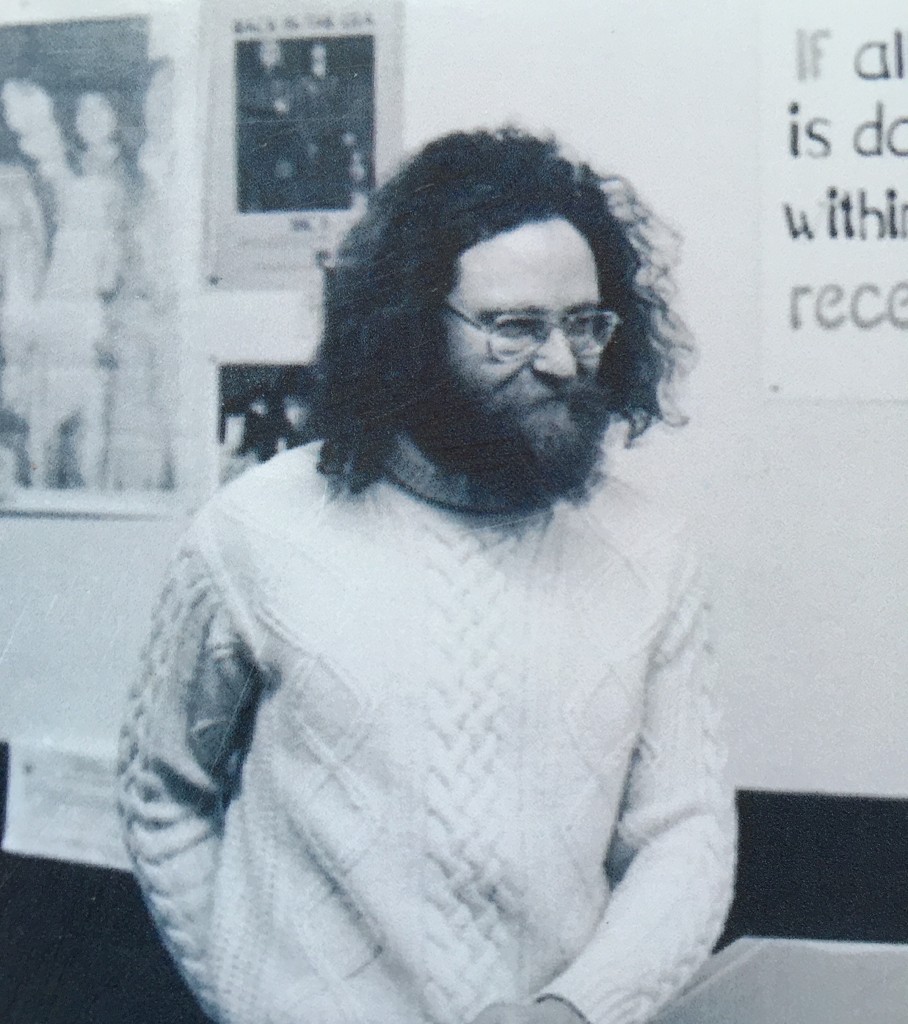Culture
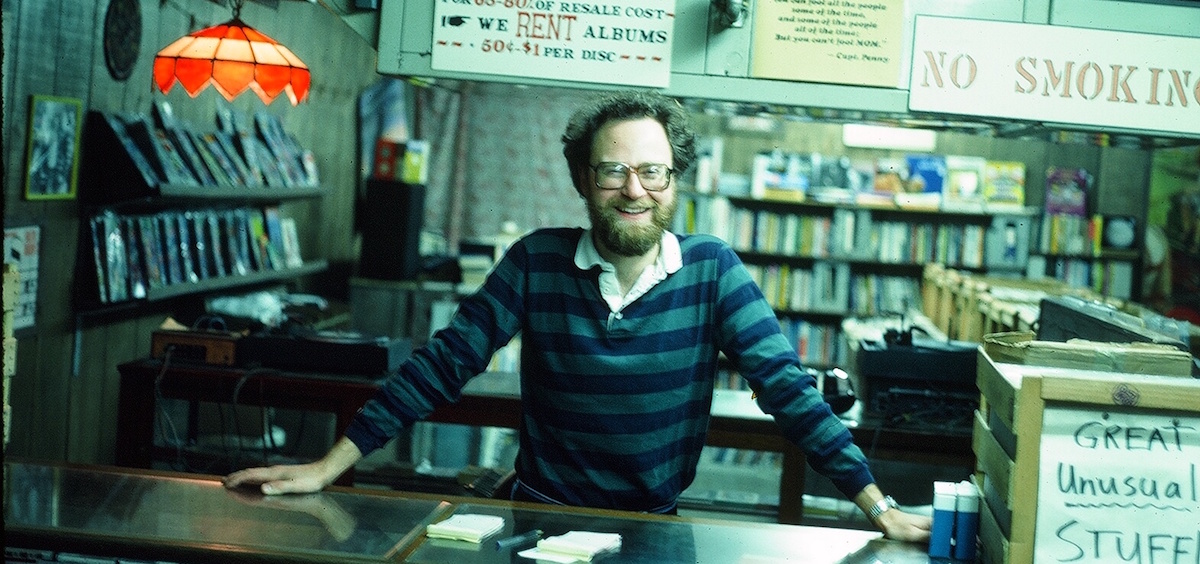
Let Me Sing My Message to You: Saying Goodbye to Haffa’s Records
By: Emily Votaw
Posted on:
It’s the fall of 1975 and former Chicago-based computer programmer Terry Higgins is sitting on a bus heading to Athens, OH from the state’s capital in Columbus.
The monumental charm of the winding hills that raise about Athens, painted a dazzling variety of autumnal hues, will be enough to make him settle on the little college town as the location for his used record and book store, an idea of his that has been percolating for some time.
He and his wife will open the store in a former laundromat at 15 West Union Street, naming it “Haffa’s.” There, generations of music snobs and purveyors of jock rock alike will snag their LPs, paperbacks (and eventually their cassettes, DVDs and CDs,) for 42 years.
Higgins will run the store until he takes a job in Texas in 1982, following the birth of his first child. The store will then be passed onto Ron Esposito, and then to co-owners Andrew Lampela and Eric Gunn.
Then, at the very tail end of September 2017, the store will forever close its doors.

“After being in Ohio for those few years, I was really impressed by how crazy for music Ohioans are,” said Higgins in an interview with WOUB a few weeks after Haffa’s announced its closing. “What I found is that everyone – the college kids, the professors, the musicians, and the people in the community in general just were all huge music fans.”
Doug “Rat” Brooks is one of those people.
He’s been an AM radio host for 12 years on WOUB’s weekly Radio Free Athens (RFA). Brooks brings in armfuls of his own musical collection on a regular basis into the womb-like interior of the AM station to play two to three hour shows on Saturdays.
“I was in a foul mood about a couple of things when I learned that Haffa’s was closing,” said Brooks. “I’m a big fan of Star Trek: The Next Generation, and there is this episode where Picard is talking to a race who found out that there is no need for material possessions – that everything can be stored and kept on a computer. And I started to think, ‘well, that’s great! No starvation, globalization,’ all that – but then I found out my favorite record store was closing!”
Brooks has been collecting music since his childhood, starting his collection with the 45 of Johnny Nash’s 1972 hit “I Can See Clearly Now” from the album of the same name, and Elvis Presley’s 1973 LP Aloha from Hawaii Via Satellite.
“I live near Strouds Run, and there isn’t anybody who can get me high speed internet out there, so I don’t know what I’ll do for music,” said Brooks. “I guess I’ll have to start going to Lost Weekend in Columbus, or kissing eBay’s and Amazon’s ass.”
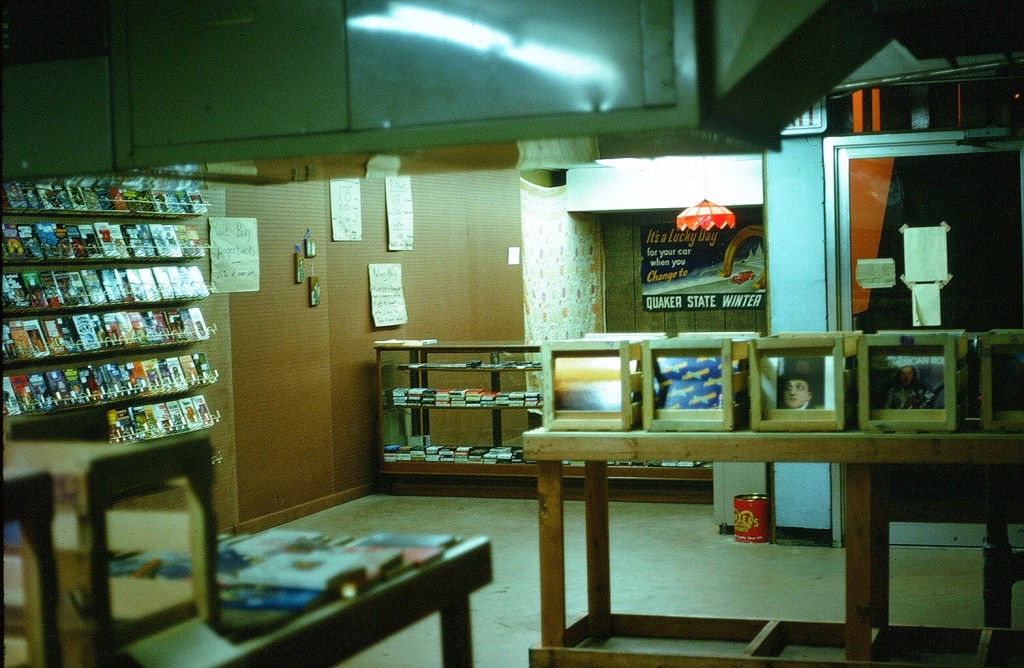
Throughout his childhood and teenage years, Brooks shopped at a variety of big box record stores, but once he discovered independently owned record stores, such as Haffa’s, there was no looking back.
“Independently owned record stores are where I started to hear all the stuff like The Smiths and The Replacements and The Minutemen and The Meat Puppets in the mid-eighties, stuff that was too ‘weird’ to be mainstream,” said Brooks. “The people who worked at Haffa’s were always so cool – I feel like Andrew (Lampela) will order me anything and not judge me for it. Haffa’s really was instrumental in making sure that I kept my show from just being the same stuff, played over and over and over. It’s a sad day, for sure.”
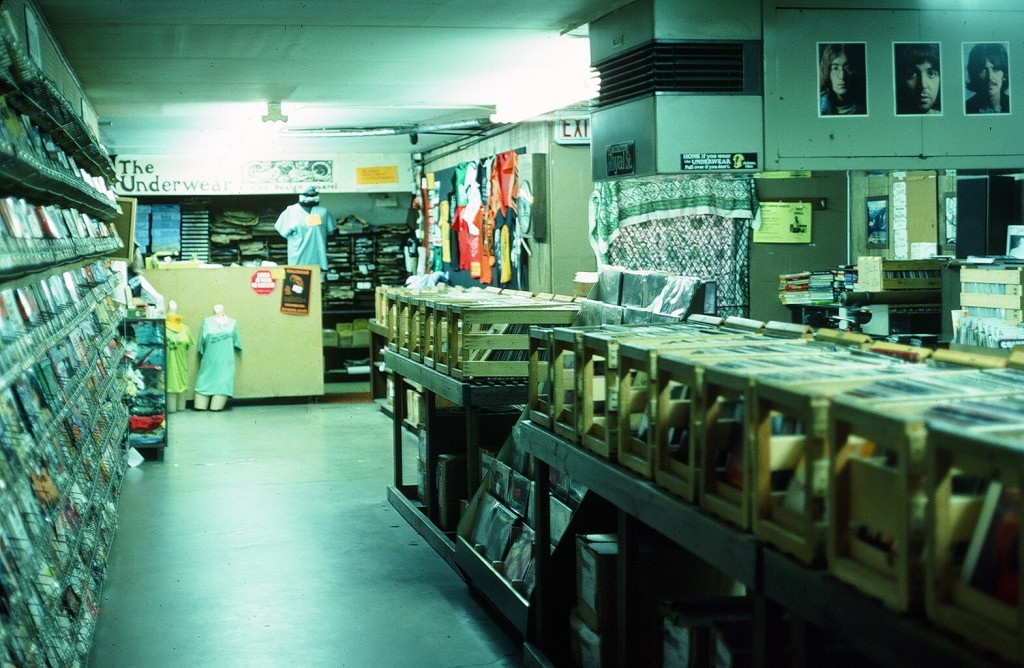
WOUB’s FM Music Director, Bryan Gibson, and Donkey Coffee owner, Chris Pyle, are longtime friends and music enthusiasts. While they may agree with Brooks on the melancholy heft of Haffa’s closure, they might question whether or not Lampela had a tendency to remark on customer’s purchases.
“I remember going in (Haffa’s) to get the new Coldplay album – because Brian Eno had produced it, and I love Brian Eno, and it got good reviews. I brought the album up to the counter and I lay it down and Andrew (Lampela) just gives me this look, and then he looks down at the record and then he looks back up at me, and he goes – ‘are you serious?’ And it’s just like wow! – this is great! This is really like High Fidelity!” said Pyle. “There is this kind of judgement, which you kind of want when you walk into a record store. You want to get taken down a couple of notches – and that’s just a part of the record store experience. Some people don’t want that, I guess, but it’s just what you get when you go into a record store to buy the new Coldplay album.”
Haffa’s would become the principal record buying establishment that Gibson and Pyle would frequent in their post-college years, although both of them have memories of the place dating back a few decades.
“I remember that it seemed like kind of a freaky place to go, as a kid. It was in a basement, and all the people who worked there seemed, to a young kid, like ‘weird’ college kids,” said Gibson.
“There is this kind of judgement, which you kind of want when you walk into a record store. You want to get taken down a couple of notches – and that’s just a part of the record store experience. Some people don’t want that, I guess, but it’s just what you get when you go into a record store to buy the new Coldplay album.” – Chris Pyle, Donkey Coffee owner and Haffa’s Records regular
Kory Kasler, 27, a local record collector, said he remembers frequenting Haffa’s as early as his mid-teens, although he didn’t become a regular until he was a part of Ohio University’s All Campus Radio Network (ACRN).
“When I first started doing things for ACRN, all kinds of new music was coming onto my radar,” said Kasler. “At first, I was just going into Haffa’s to put up flyers for the shows that ACRN was putting on. But then I started to buy records there every once in a while, as I was getting into collecting records. Andrew (Lampela) has this encyclopedic knowledge of music – so that combined with my newfound desire to buy records just made Haffa’s the place to go.”
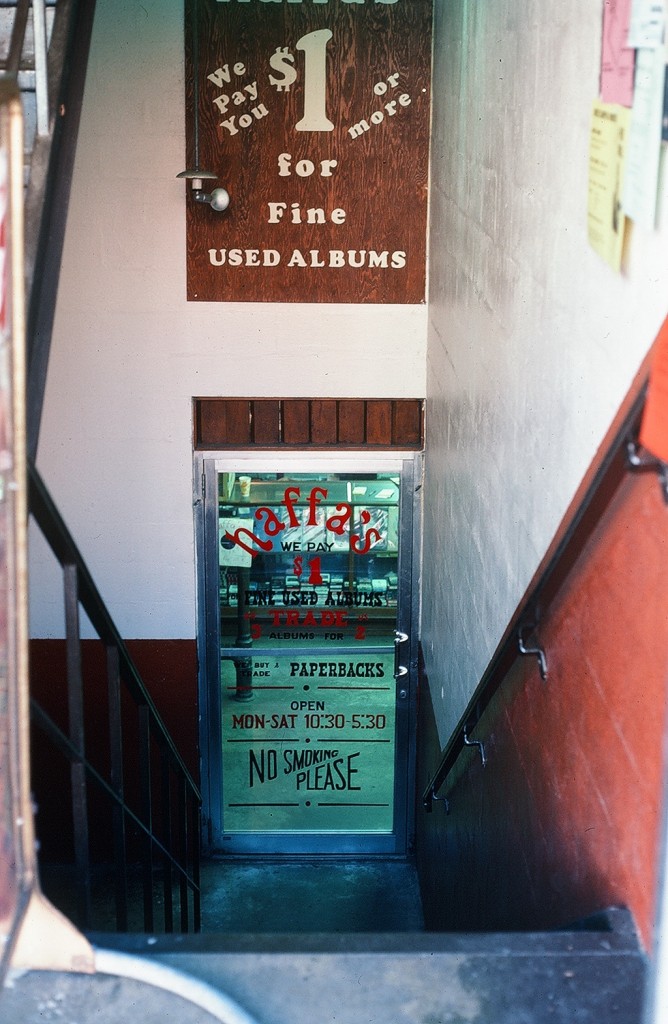
“Andrew exposed me personally to a lot of great music,” said Kasler. “He just has this incredible sense of customer service. When a really good shipment of records would come in, he would always save things back for you – and that alongside his support of the local music community really made Haffa’s special.”
That heavily personalized sense of customer service had long been a tradition at Haffa’s even before Kasler first stepped foot in the store.
“I was a regular customer, and the great thing about that is that Terry (Higgins) knew what I liked because of that, and if he came across something that he thought I might enjoy, he’d put it to the side for me,” said Mark Hellenberg, a longtime Athenian and former FM Music Director for WOUB. “I was always drawn to Haffa’s, and I liked Terry personally, so I’d usually be there three or four times a week.”
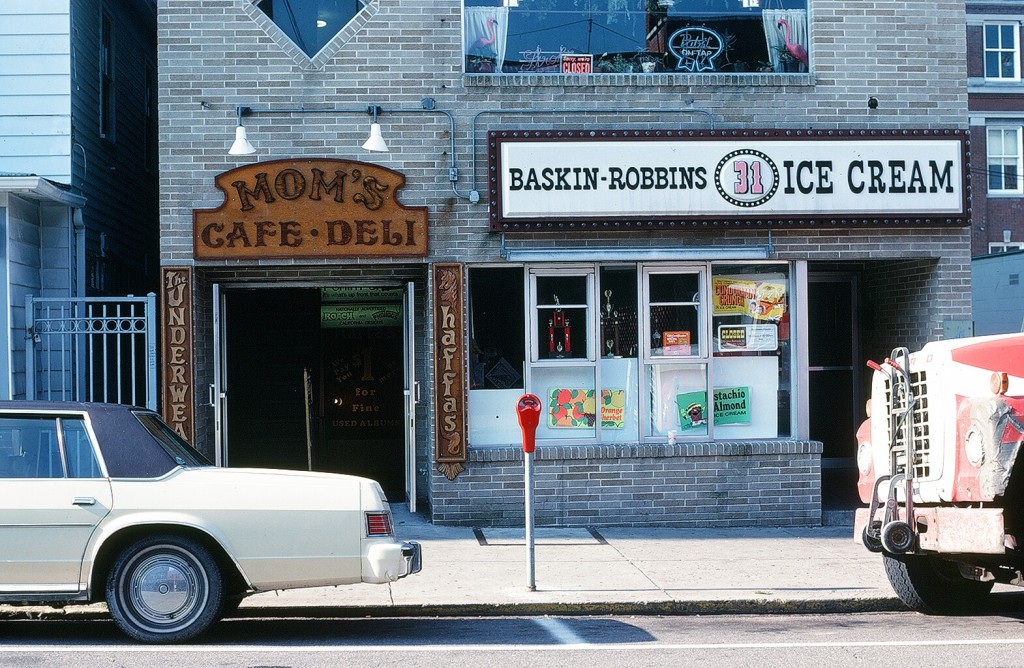
“When you’re hanging out in a record store, everybody there is deep into music – and everybody thinks the music they like is the best music, regardless of whether it really is – except for me, of course!” said Hellenberg. “I lament the closing of Haffa’s. There are some places – like Casa or Blue Eagle – which just really seem essential to Athens. I’ve lived here for 45 years, and I’ve lamented the closing of so many places like that, places that seem like they just are Athens.”
Hellenberg, over the course of his tenure in radio, saw the music industry and the culture of music consumption change time and time again.
“The thing about a place like Haffa’s was that they’d pay you for used records, and there was also a trading policy. That meant that you could take a gamble on something that you didn’t know about – it was like a treasure hunt, you never knew what you would find,” said Hellenberg. “Part of the allure was finding something that you had never heard before. I don’t know how many albums I bought at Haffa’s that Terry had put aside for me that ended up being some of my all-time favorite records, and many of them were things I wouldn’t have known anything about otherwise.”
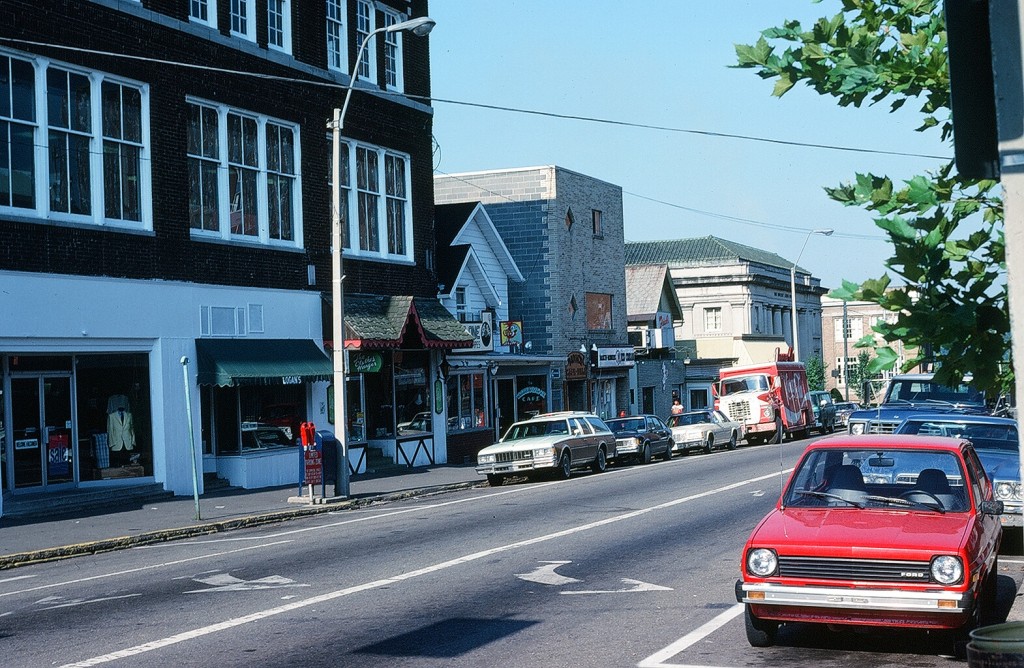
Although Higgins changed career paths as he began to raise a family, he, too, observed the rise of the cassette, followed by the CD, and then the complete digitization of mainstream media consumption.
“It’s absolutely mind-boggling to me, the amount of change that has occurred. If you had talked to me in 1966 and told me about what we have now in terms of music consumption, it would have sounded like science fiction,” he said. “Now it is very easy for people access music – you can be walking down the street, think of a song that you want to hear, pull out your phone, and you can hear it completely for free. When people can do that, why would they want to bother with physical media?”
While the reason behind Haffa’s closing isn’t one that is particularly hard to pinpoint for anyone with any familiarity with how the music industry works in 2017, it’s not like there aren’t still some secrets in the walls of 15 West Union. As it turns out, you’ve probably been pronouncing the name of the place wrong the whole time.
“Many people have asked for the reason for the name of the store, and I know that I told the subsequent owner, but I don’t know that any of my employees even knew about it,” said Higgins. “I roomed with my best friend from high school when I was in college, and he was very into music, and he introduced me to tons of stuff – including Otis Redding’s Live In Europe album. In between the songs, (Redding) does some stage banter, and one of the things that he says is ‘when the Haf-fas is gone,’ and we were curious about that, and amused by it.”
The name also sounds an awful like the playful, nonsense chorus of Redding’s 1966 semi-hit “Fa-Fa-Fa-Fa-Fa (Sad Song),” which, in text, just reads “Fa-fa-fa-fa-fa-fa-fa-fa-fa,” but, thanks to Redding’s lilting vocal, sounds more like “Ha-fa-fa-fa-fa-fa” on record.
“It’s just an obscure little musical reference that we liked,” said Higgins. “But, I didn’t know if it meant anything, if it means anything at all. I was always afraid that if I explained it, someone far wiser than I would know where that phrase came from.”
